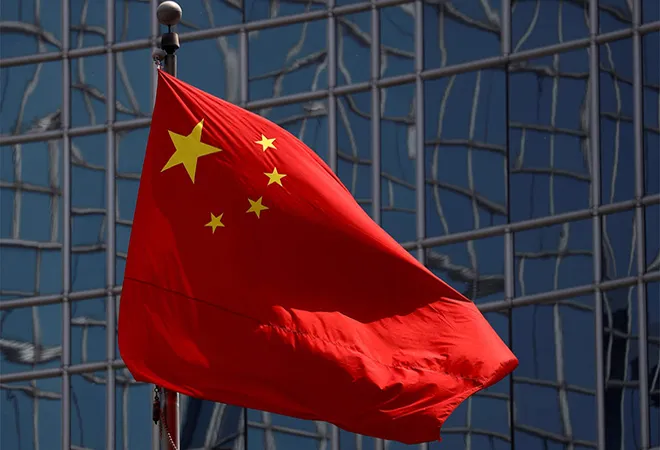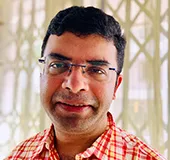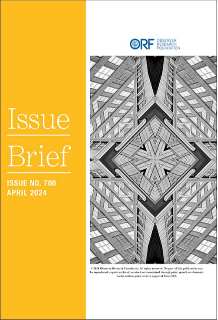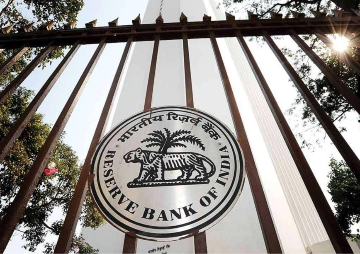
Wang Yang, Chairman of the Chinese People’s Political Consultative Conference, met with leaders of the clergy association recently. The deliberations seem to point toward the future trajectory of organised religion in China. Wang stressed the need to build a contingent of “politically dependable” clerics to ensure that the leadership of the Church remains with those who feel affection for their nation and religion. He told the representatives of the Chinese Catholic Patriotic Association, and the Bishops' Conference of Catholic Church in China that Chinese culture and language should be the foundation for interpreting religious doctrines, and that it was important to promote the ‘sinicisation’ of Catholicism. Importantly, the leader who is No. 4 in the Chinese Communist Party (CCP) hierarchy wants the Church to repel “infiltration by foreign forces” and protect China’s “security and development interests”.
The unease between the CCP religion and organised religion is becoming apparent. While China’s President Xi Jinping has abstained from foreign travel since the outbreak of the pandemic, in the run-up to the Party Congress in October, he visited all the restive regions—Tibet, Hong Kong, and Xinjiang. During his trip to Xinjiang, Xi underscored the need for Islam, in China, to conform to Chinese sensibilities.
While China’s President Xi Jinping has abstained from foreign travel since the outbreak of the pandemic, in the run-up to the Party Congress in October, he visited all the restive regions—Tibet, Hong Kong, and Xinjiang.
At the National Conference of Religious Work held in April 2016, whilst emphasising the need for developing a theory of socialist religion with Chinese characteristics, Xi Jinping reiterated patriotism and socialism as two cardinal virtues that every religion must adhere to. Besides, he also issued a warning against any religious interference with government administration and called for resolutely guarding against any overseas infiltration through religious institutions. To further consolidate the party’s hold over religion, the State Administration of Religious Affairs (SARA) which earlier oversaw religious affairs was subsumed within the United Front Department of the Central Committee of the CCP in 2018.
Cassock, carrot, and stick
The CCP uses both coercion and co-optation to ensure that organised religion does not threaten its existence and instead remains aligned with its interests.
Hong Kong had until lately remained relatively immune to the CCP’s control on religious affairs, owing to its special status guaranteed by the Basic Law, but now the island seems to be the renewed focus of this project. However, with the enactment of the National Security Law in June 2020, followed by changes to legislative and electoral procedures, Beijing has already tamed institutions it deems as recalcitrant. Now, it is the turn of one of the last pockets of resistance: The activist-cleric. In an important interaction in October 2021, bishops from the mainland met their counterparts in Hong Kong to urge them to preach “religion with Chinese characteristics”.
Concerns with respect to the national security law in Hong Kong have led to many places of worship desisting from holding the annual mass in memory of those killed in the 1989 Tiananmen Square crackdown. However, a defiant Ward Memorial Methodist Church went ahead and organised a prayer meeting. Some individuals too remain undeterred. The retired head of Hong Kong’s Roman Catholic Church, Cardinal Joseph Zen, has featured consistently in pro-democracy protests, and vigils to observe the anniversary of the 1989 crackdown. He also attended court proceedings involving activists and visited jails where they were incarcerated. Recently, Cardinal Joseph Zen was taken into custody under national security law and accused of colluding with foreign forces.
Concerns with respect to the national security law in Hong Kong have led to many places of worship desisting from holding the annual mass in memory of those killed in the 1989 Tiananmen Square crackdown.
However, in 2018, the Vatican City and China concluded a deal relating to the appointment of bishops in the Roman Catholic Church. While the details of the deal are still a secret, it reportedly allows the Pope the right to appoint bishops in the Roman Catholic Churches in China from a pool of candidates nominated by the Chinese authorities. Cardinal Zen had been at the forefront in opposing the deal and even visited the Vatican in 2020 to dissuade the Pope from renewing it further. He accused the Holy See of betraying the underground Catholics and selling them off to the Chinese state. However, despite his objection, the Vatican extended the deal for another two-year period that is set to expire in October 2022.
The deal seems to have been to the CCP’s advantage as it pushes forward the notion that the members of the religious denomination can adhere to both Catholic preaching and Communism with Chinese characteristics. Importantly, it gives the CCP leverage over the internal dynamics of the Church.
Cold War lessons
A part of the CCP’s paranoia about organised religion stems from the means employed by the US in the 1980s that hastened the fall of its fraternal regimes in Eastern Europe. Edwin Meese, who served as Attorney General to US President Ronald Reagan, reveals that the West adopted a strategy of mobilising resistance against Communism without the use of hard power tools such as the military and supporting anti-Marxist groups. America’s national security advisor Richard Allen termed the Vatican-US axis as “one of the great secret alliances of all time”. This compact between the Vatican and the Reagan administration ensured that there was osmosis of crucial intelligence inputs. Poland was chosen as a place to implement this strategy since it was steeped in religion. Thus, a Polish trade union such as Solidarity received monetary support from the US and the Vatican. Similar to Hong Kong, Poland had then declared martial law and in a crackdown rounded up Solidarity trade union members, several activists have been arrested since the promulgation of Hong Kong’s National Security Legislation in 2020. Poland had then severed communication with the outside world, and Hong Kong today is becoming more insular. This has been compounded in both cases by a centralised political authority and economic difficulties (on account of the COVID-19 outbreak and China’s response to it). Back then in Poland, out of a population of 35 million nearly 90 percent owed allegiance to the Church. Hong Kong government estimates reveal that in 2020 out of a total population of 7.2 million, the strength of the Protestant and Catholic denominations was 500,000 and 403,000 respectively.
Quest for national security
The renewed efforts to push the sinicisation of religion on the island seem to have been prompted by an assessment that Hong Kong may become useful to the West as a bridgehead against the CCP. This can be evidenced by the political and security dynamics of the island. While once figures connected to the civil administration or those with a background in commerce and industry came to helm the special administrative region, now those with close relations to the establishment or those with a background in security services are increasingly finding favour. The Hong Kong and Macao Affairs Office (HKMAO), an agency that supports Beijing in dealing with matters related to the island, is headed by Xia Baolong, who incidentally was responsible for demolishing Christian churches on the mainland. Xia is an ally of Xi Jinping, and Xia’s recently appointed deputy in the HKMAO, Wang Linggui, is an expert in national security.
The renewed efforts to push the sinicisation of religion on the island seem to have been prompted by an assessment that Hong Kong may become useful to the West as a bridgehead against the CCP.
Another facet that emerges from this is the ability of an atheist CCP to co-opt even the teaching of the pious. The Church has followed a policy of ‘inculturation’, which seeks to incorporate elements of local culture in faith. The CCP seems to draw on this, but in reality, ‘sinicisation’ underscores the primacy of the Party-state into the prerequisites of religion. Moreover, the Office for Safeguarding National Security of the Central People's Government—an agency that was established by Beijing in Hong Kong under the aegis of the national security law—has termed national security as one of the chief requirements for the city-state’s stability and long-term development of the “one country, two systems” framework under which it is governed. The need to tame the likes of the activist-cleric also stems from the new Hong Kong administration’s priorities.
Under Article 23 of the Basic Law, the city-state’s mini-constitution, it is the Hong Kong administration’s responsibility to enact laws on its own to prohibit acts that jeopardise national security. On the campaign trail, Hong Kong Chief Executive John Lee had indicated that promulgating legislation, which would supplement the national security law imposed by Beijing in 2020, was his priority. On previous occasions like in 2003, when the administration tried legislating Article 23, it drew protestors on the island. Lee’s predecessor, Carrie Lam, too, toyed with the idea but dropped the issue as it remains a political hot potato. The attrition of religious freedom in Hong Kong will continue as it gravitates towards greater political unity with Beijing and as security dominates political discourse on the island.
Tony Judt, Postwar: A History of Europe Since 1945 (Penguin, 2005), pp. 589.
The views expressed above belong to the author(s). ORF research and analyses now available on Telegram! Click here to access our curated content — blogs, longforms and interviews.




 PREV
PREV



